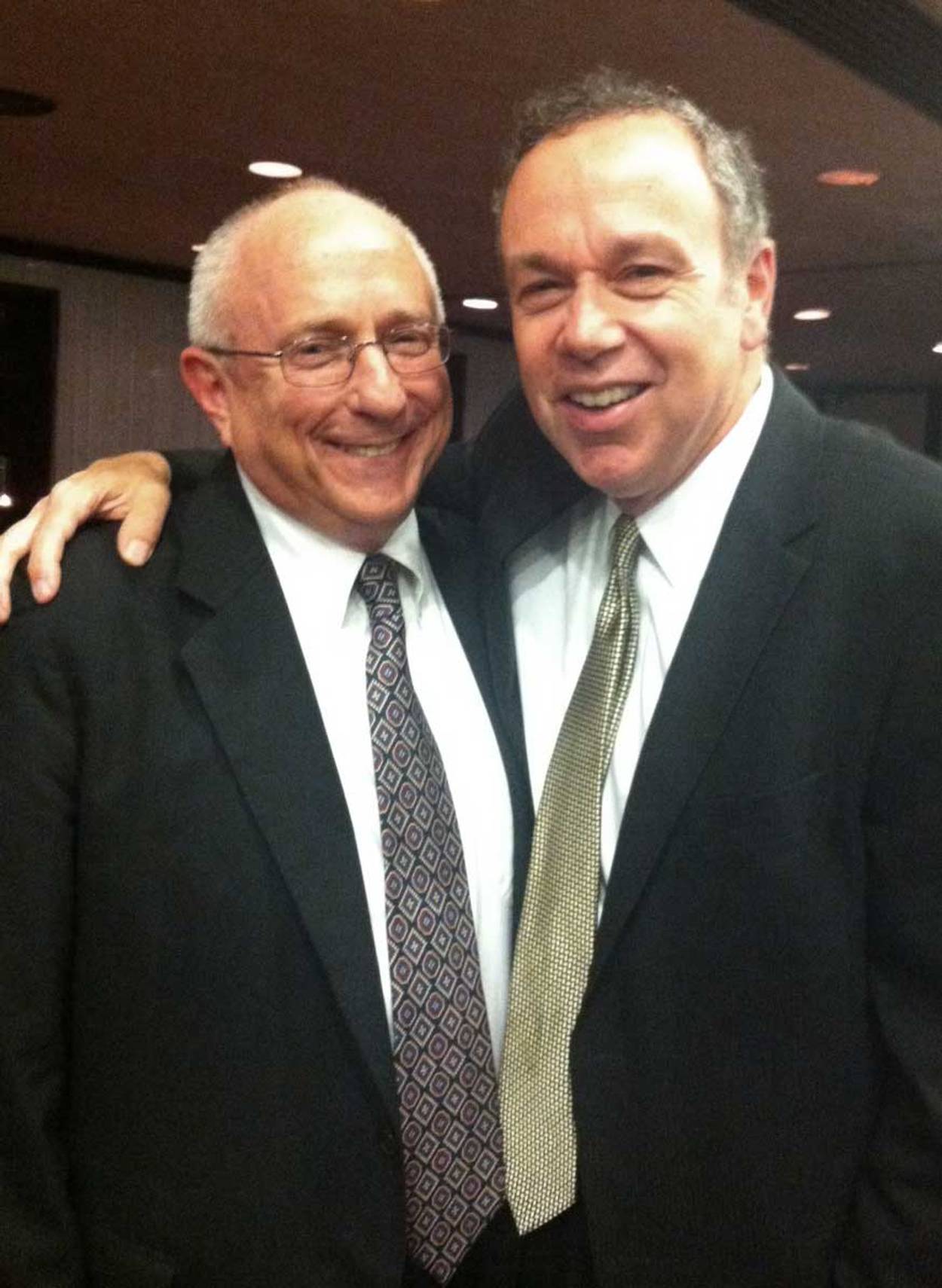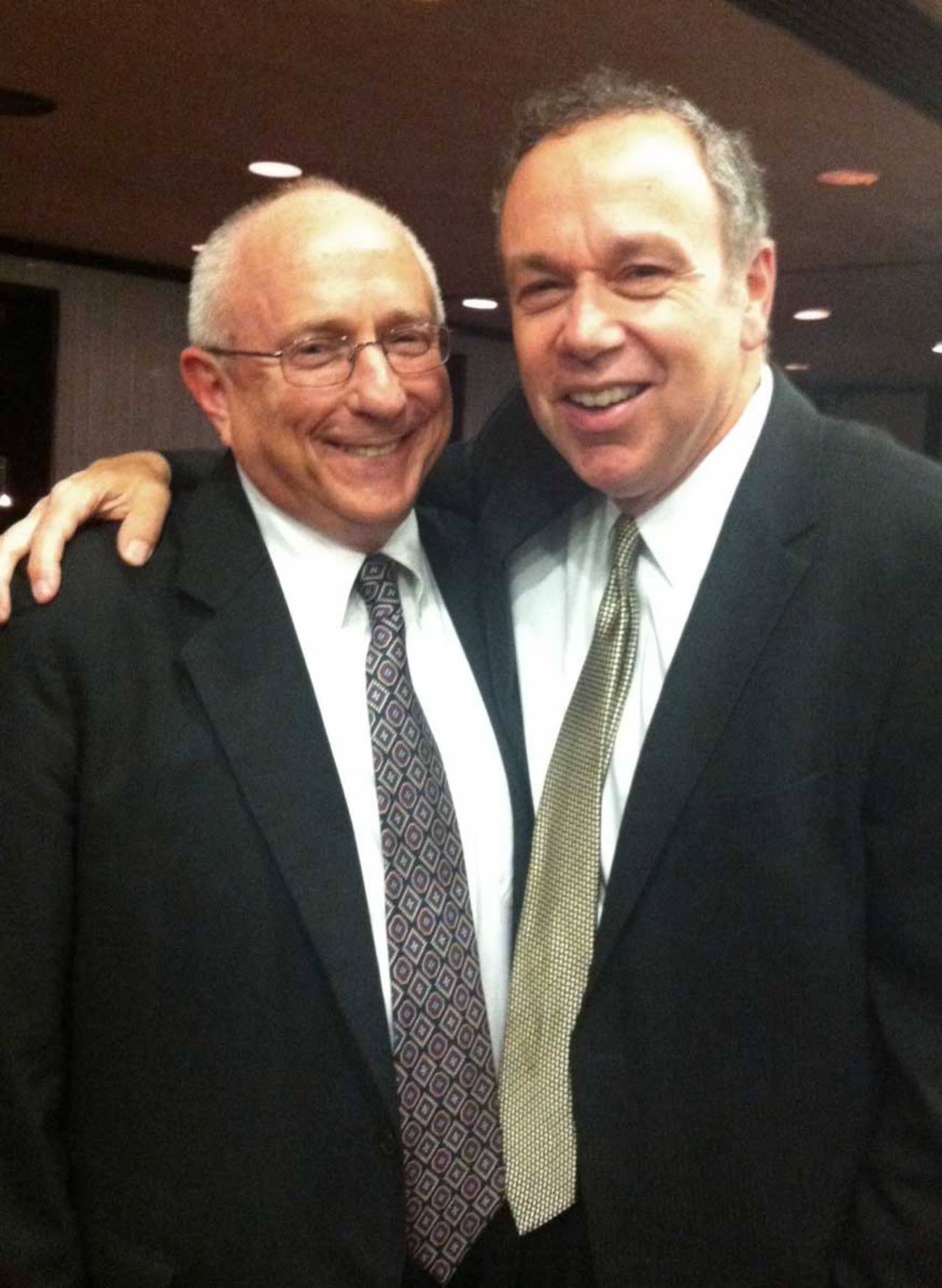Men of Letters
Dani Ritholtz’s new memoir chronicles the highs and lows of his father Bruce’s life after a cancer diagnosis




The term “epistolary” immediately evokes the word “novel,” and has been utilized to great effect by writers from Balzac and Dostoevsky to C.S. Lewis, Saul Bellow, and Gary Shteyngart. The form has also been adopted in Jewish discourse, notably by Samson Raphael Hirsch, and more recently by Hillel Halkin, and Yossi Klein Halevi.
Daniel (Dani) Ritholtz, 24, a rabbinical student at Yeshiva University, has made the form his own in a unique, sweet, and moving memoir: As a Ram Yearns for the Brook: The Journey of a Father and Son.
The book memorializes Ritholtz’s father, Bruce, who died of pancreatic cancer in 2014, at age 57. It tells three simultaneous tales: a portrait of a close family, a fight against one of the worst forms of cancer, and the psychological and spiritual aftermath of a father’s early death. The narrative unfolds in a series of letters, real and imagined, between Dani and his father, stretching from the day of his birth, into the present. Their lives are shattered on June 12, 2013, when, after months of mysterious back pain, his father tells him and his siblings:
“You know the pain I’ve had in my back the past few months? Well, the doctors have figured out the cause ... I have cancer. The doctors said they think they caught it pretty early. It’s serious, but they think it’s manageable. I don’t know why Hashem would do this. I’m not angry ... I am a little upset ... but we’re going to pray ... and I’m going to be the best patient, I can make you that promise ... we’re going to fight this and beat this together ... Do you guys have any questions?”
Dani writes:
The tears started to well up in our eyes so quickly. After a few seconds, I was able to croak out, “What type of cancer?”
“Pancreatic.”
Dani’s father was my dear and close friend, and I make little attempt at objectivity in this piece other than to warrant that the Bruce Ritholtz captured in these 170 pages is a detailed and accurate rendering of the extraordinary man I knew and loved. It perfectly captures the manner in which he served as a leader and role model for thousands of people in the two communities in which he and his family lived, first, on the Upper West Side of Manhattan, and then Teaneck, New Jersey. Bruce was a proud, enthusiastic, and studious Jew; a doer, a giver, a peacemaker, and a prodigious fundraiser for the causes dear to his heart. First and foremost, however, Bruce was a deeply loving husband, father, and son.
Those traits are captured in the idyllic opening pages of the book where Dani describes warm Shabbat meals, Sunday morning reveries, extended family gatherings, and fondly remembered vacations. Ritholtz recounts the story that was told after his own brit milah, when a family friend, Hillel Gross, approached his father and said: “Bruce, your inability to control yourself when describing how thankful you were to your wife, Michelle, for bringing this child into the world was a disgusting display. All of our wives turned to us and asked, ‘Why don’t you ever talk to me in those loving terms?’”
Most of the book is a chronicle of the lows and highs of the year after the diagnosis, as Bruce’s community rallies around him, undergirding him as he fights for his life. In one of his letters, he discusses his feelings after learning of his cancer: “I understood I had much to overcome, but I did not believe I would have any sort of crisis with my beliefs or relationship with G-d. How wrong I was.” Bruce was always a deeply spiritual person, in love with Judaism, and a daily participant in his synagogue’s Daf Yomi classes. However, a few days after the diagnosis, he writes: “I came downstairs to doven and I’ve always considered myself a pretty spiritual guy, but as I wrapped my tefillin around my arm, I stopped. I froze, and an overwhelming sadness came over me. I thought to myself that G-d had lost interest in me ... and therefore I had lost interest in G-d. But then within days, two things happened in amazingly close proximity that changed my entire perspective. It was almost as if Hashem had no intention of allowing me to wallow in any sort of depression.”
What were the two things? First of all, a group of friends created a website, and within 36 hours, hundreds of people had pledged to study every section of the Talmud in the hope that in the merit of such study, Bruce would enjoy a full recovery. And, they even planned a celebration of the completion—a siyyum—for the following October. Additionally, the leaders of his shul, Congregation Rinat Yisrael, established a Shabbat service in the Ritholtz home so Bruce could continue praying communally as he underwent chemotherapy and dealt with its debilitating consequences. That service took place each and every Shabbat and holiday, for the next eight months.
Faced with this outpouring, Bruce subsequently met with his close friend Rabbi Adam Mintz who helped organize the Talmud study, and asked him “how was it possible that I have pancreatic cancer but truly feel like the luckiest man on the face of the earth.” He continued: “The answer hit me and it was obvious. The reason I feel so happy and so lucky is because of [pointing] you and you and you and you and you and you and you and you. It hit me that each and every one of you were acting the way G-d wants Jews to act. With loving kindness, with generosity, visiting the sick, learning His Torah, learning His ways. You were acting with G-dliness. I was seeing G-d in you.”
Chemotherapy and radiation successfully shrunk Bruce’s tumor to the point where, on Feb. 25, 2014, he was able to undergo surgery at Columbia Presbyterian Hospital to remove the remains of the cancer from his pancreas, which he characterized as “the final and curative step of my treatment.” Bruce was able to return to shul in April and felt well enough to take a trip to Israel the following month. Sadly, in June, the cancer returned with a vengeance and Bruce was once again plunged into the world of chemotherapy, radiation, and surgery; by the end of September he had lost his battle.
At the time of his father’s death, Dani was in Israel, at his parents’ insistence, spending his gap year studying at Yeshivat HaKotel, in Jerusalem. The third section of his book, “Mourning,” details Bruce’s burial in Israel, and the ways Dani and his family dealt with their tragedy. At one point he writes: “The amount of love he had for us was so apparent that when he would have to discipline us, we could count on five minutes later him being there in our rooms to tickle us and joke with us to make sure our crying turned to laughter. That’s because he couldn’t stand seeing his children crying; he needed them to be happy. All three of us cry now, but there is no one to joke with us, no one to tell us it will be OK. We can’t stop our tears, because the source of our laughter for all these years is gone.”
In this chapter, Dani also speaks frankly about his struggles with depression following his father’s death, and the loss, 11 months later, of his maternal grandmother, from the same disease: “I feel a weight ... I can’t get out of bed,” he writes. “There’s a brick wall separating me from everything, including Him.” Four years pass, and Dani shares his appreciation for the therapists, relatives, and friends who helped him gain the tools to “deal with the negative thoughts and the brick walls that fell on top of me.” He writes to his father: “When Mom told me early on after your diagnosis that I could see a therapist if need be, I internalized the message ... It’s OK—it’s even admirable ... Just as you see an orthopedist if you break a bone, you see a psychologist when an issue arises in your mind.”
I was in Israel in June 2018, when I heard the news that an old friend and neighbor had died and was being brought to Israel for burial. The funeral was to take place at noon at the Eretz Hachaim Cemetery, in Beit Shemesh, a 30-minute drive from Jerusalem. My wife and I arrived a few minutes early and found absolutely no one in the chapel (in Israel even funerals don’t start on schedule). We knew that this was the cemetery where Bruce Ritholtz was buried, and having visited his grave a few years earlier, had decided to do so again.
It was one of the hottest days of the year and the noonday sun beat down as we headed toward the grave. As we approached, I noticed a lone figure standing adjacent to the plot, gently swaying in prayer. As we came closer I realized that it was Dani, who I had not been aware was even in the country. We embraced. For a long time. He explained that he had taken a summer internship in Israel and often used his day off to ride the bus to Beit Shemesh to commune with his dad.
The filial devotion and piety I saw that day resonates through every paragraph of As a Ram Yearns for the Brook, which I read through a veil of tears; it is a rumination on parental love, faith, community, and so many of the attributes that have enabled the longevity of the Jewish people. It is also a fitting tribute to the life and legacy of one of the finest, sweetest, people I have ever had the privilege of calling a friend.
Morton Landowne is the executive director of Nextbook Inc.